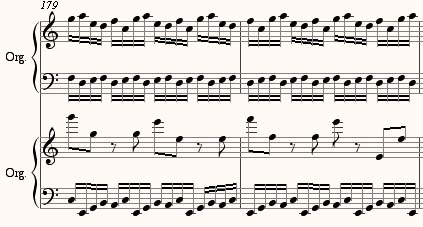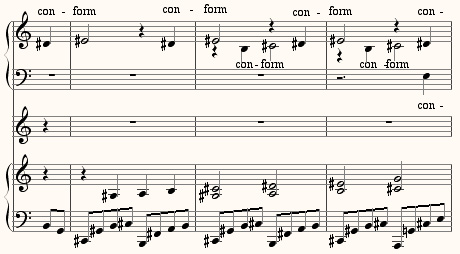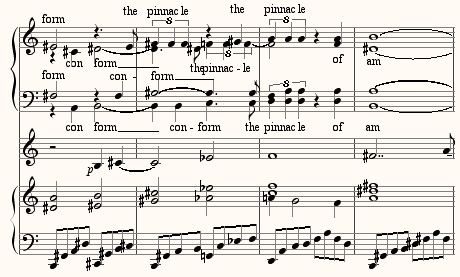This Saturday night, December 16, at 7:00 PM at Bard College’s Bard Hall, my son Bernard Gann will present a concert of his music. Much of it will be by his rock trio, Architeuthis. A piano piece will be played by, coincidentally, student Ming Gan. And a new work called Two Organs will be performed by myself and Joan Tower on electric keyboards. Joan and I have never performed together. It is highly unlikely that we will ever perform together again – I’m not much of a performer, except possibly of my own music, and Joan has retired from anything but conducting. I half think Bern wrote the piece to get us onstage together. So if it ever occured to you that it would be fun to see Kyle Gann and Joan Tower play a duet, this is, in all probability, your one shot. A cofounder of the Da Capo ensemble, Joan is, of course, an incredibly more experienced pianist than I am, and it’s fun playing with her – she’s so good at signaling her intentions, and completely easy to follow. The piece itself is kind of a moment-form postminimalist piece, Glass crossed with Stravinsky, and here and there a Terry Riley echo, enlivened by some totalist rhythmic complications (pictured) that have had me tearing my hair out. Later I’ll put up some Architeuthis music on my web site, because I’d be curious about your opinions.

Tonight, of course, my Open Instrumentation ensemble performs at Bard Hall from 7:30 to 10:30. The description here will refresh your memory.


